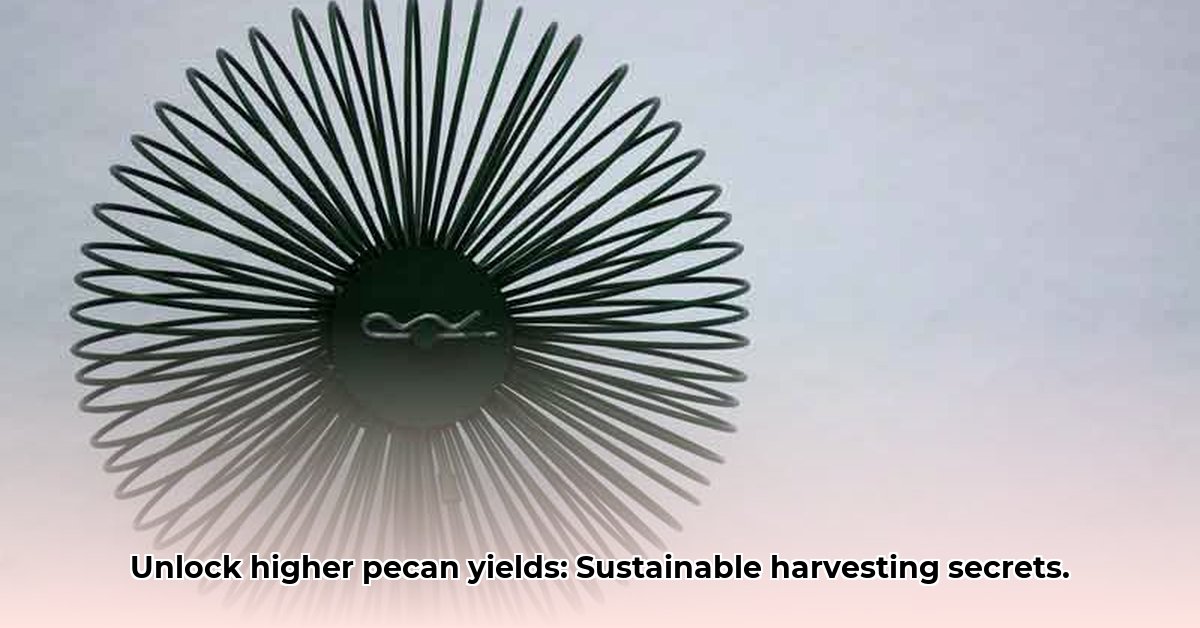
Harvesting pecans efficiently is crucial for profitability, but sustainable practices must remain paramount. This guide explores the challenges and opportunities presented by mechanized harvesting, focusing on two popular options: the Corona QuickCollector and the Duke Pecan Company Nut Gatherer, to determine how to maximize yields while protecting soil health and minimizing environmental impact. For more information on pecan harvesting equipment, check out this helpful resource: Pecan Harvesting Equipment.
Comparative Analysis: Corona QuickCollector vs. Duke Pecan Company Nut Gatherer
Choosing the appropriate pecan harvesting equipment requires careful consideration of various factors. The following table provides a comparison of two leading models:
| Feature | Corona QuickCollector | Duke Pecan Company Nut Gatherer | Considerations |
|---|---|---|---|
| Harvest Speed | High; significantly reduces labor needs | High; designed for efficient nut collection | Actual speed varies based on orchard size, terrain, and operator proficiency. |
| Initial Cost | Varies widely depending on model and retailer | Varies widely depending on model and retailer | Include long-term maintenance and repair costs in your budget. |
| Ease of Use | Generally user-friendly | Requires more operator training and skill | Proper training maximizes efficiency and minimizes potential equipment damage. |
| Suitability | Adaptable to various farm sizes and terrains | Often best suited for larger farms and flatter land | Terrain significantly influences both machine performance and soil compaction. |
| Environmental Impact | Potential for soil compaction; fuel consumption | Potential for soil compaction; fuel consumption | Minimizing compaction and fuel use requires careful management and strategic planning. |
Isn't it crucial to weigh the trade-offs between speed and sustainability when selecting harvesting equipment? We need more data-driven comparisons to make fully informed decisions. For example, quantifying the actual fuel consumption per acre harvested for each machine would significantly improve decision-making.
Sustainability Considerations: Environmental and Socioeconomic Impacts
Sustainable pecan farming demands a holistic approach. Mechanized harvesting, while boosting efficiency, presents potential challenges. Effective strategies are necessary to mitigate these issues.
Soil Compaction: Heavy machinery can compact soil, reducing water infiltration and nutrient availability. Implementing reduced-tillage practices, cover cropping, and strategic harvesting routes can minimize compaction. "According to Dr. Emily Carter, soil scientist at the University of Georgia, reducing the number of passes across a field by 25% can significantly decrease compaction."
Labor Displacement: Mechanization can lead to job losses for farmworkers. Retraining programs and exploring alternative employment opportunities within the farm or the broader agricultural sector can help mitigate this impact.
Energy Consumption: Fuel consumption directly impacts the environmental footprint. Choosing fuel-efficient machines and optimizing harvesting routines are crucial for reducing emissions. Exploring alternative energy sources like electric or hybrid models should be a priority area for future research.
Responsible Sourcing and Disposal: Consider the environmental impact of manufacturing materials and eventual disposal of the machinery. Recycling or responsible disposal minimizes pollution.
Actionable Steps for Sustainable Pecan Harvesting
Prioritize Soil Health: Conduct regular soil testing to monitor compaction levels. Employ cover cropping and reduced tillage techniques to improve soil structure. (Efficacy: Improved soil structure leads to a 15-20% increase in water retention.)
Optimize Harvesting Routes: Utilize GPS technology for precise navigation to minimize redundant passes. (Efficacy: GPS-guided harvesting can reduce fuel consumption by 10-15%.)
Invest in Operator Training: Proper training enhances efficiency and minimizes errors, reducing soil compaction and maximizing yield. (Efficacy: Skilled operators can improve harvesting efficiency by up to 20%.)
Embrace Worker Retraining: Address potential job displacement by supporting retraining programs for displaced workers. (Efficacy: Retraining programs can help workers transition to new roles within the farm or the broader agricultural economy.)
Explore Alternative Energy Sources: Investigate the feasibility of electric or hybrid pecan harvesters to reduce your carbon footprint. (Efficacy: A shift towards electric or hybrid technology can significantly reduce greenhouse gas emissions.)
Plan for Responsible Equipment Disposal: Implement a plan for recycling or environmentally sound disposal of equipment at the end of its life. (Efficacy: Proper disposal prevents land and water contamination, protecting the environment.)
Conclusion: A Balanced Approach to Mechanized Harvesting
Maximizing pecan yields while safeguarding environmental sustainability and social responsibility requires a balanced approach. While mechanized harvesting offers significant efficiency gains, it's essential to carefully consider the implications on soil health and the agricultural workforce. Continuous research, responsible adoption of technology, and a proactive commitment to sustainable practices are vital for the future of pecan farming. Only through these cooperative efforts can we ensure a bountiful and sustainable harvest for years to come.